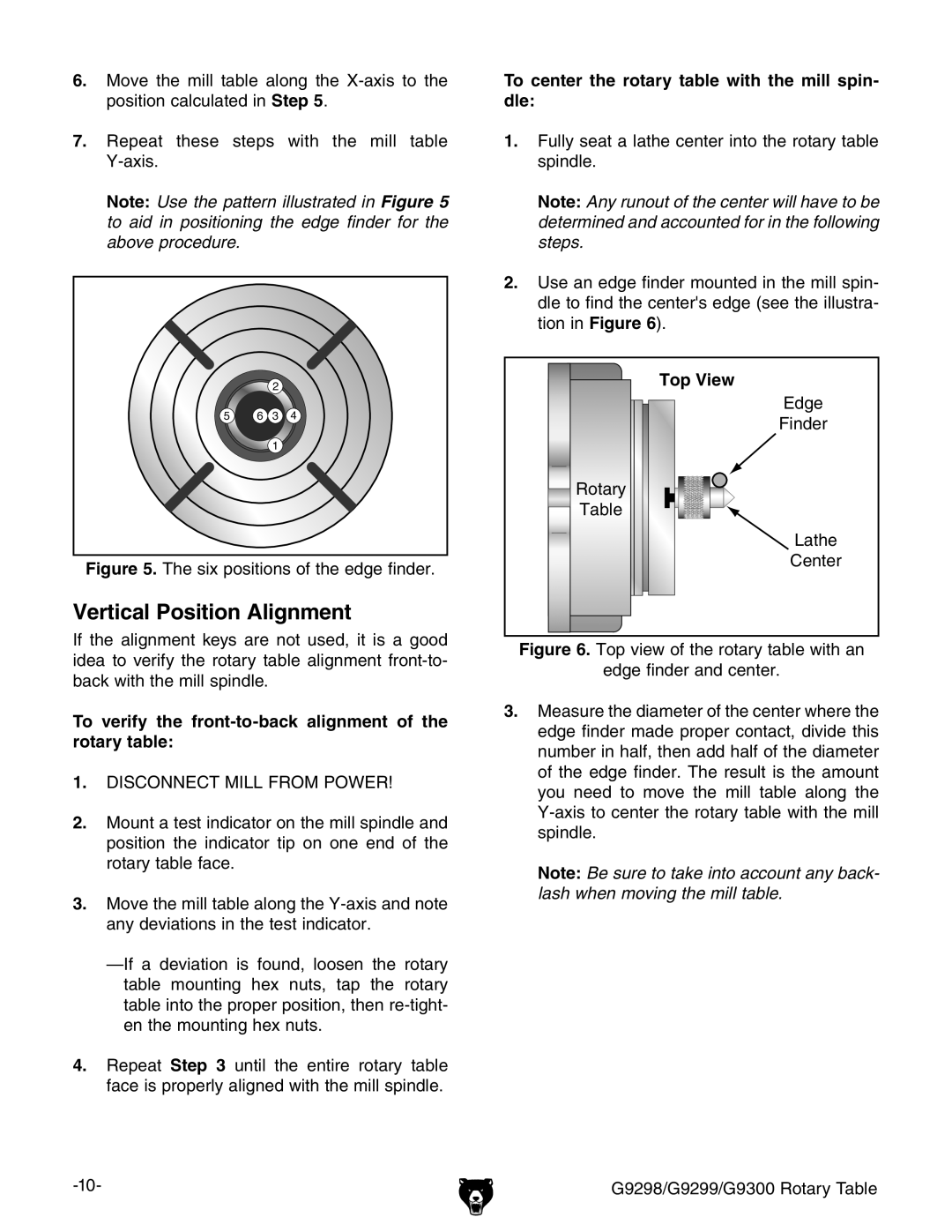
6.Move the mill table along the
7.Repeat these steps with the mill table
Note: Use the pattern illustrated in Figure 5 to aid in positioning the edge finder for the above procedure.
2
56 3 4
1
Figure 5. The six positions of the edge finder.
Vertical Position Alignment
If the alignment keys are not used, it is a good idea to verify the rotary table alignment
To verify the front-to-back alignment of the rotary table:
1.DISCONNECT MILL FROM POWER!
2.Mount a test indicator on the mill spindle and position the indicator tip on one end of the rotary table face.
3.Move the mill table along the
4.Repeat Step 3 until the entire rotary table face is properly aligned with the mill spindle.
To center the rotary table with the mill spin- dle:
1.Fully seat a lathe center into the rotary table spindle.
Note: Any runout of the center will have to be determined and accounted for in the following steps.
2.Use an edge finder mounted in the mill spin- dle to find the center's edge (see the illustra- tion in Figure 6).
Top View |
Edge |
Finder |
Rotary |
Table |
Lathe |
Center |
Figure 6. Top view of the rotary table with an
edge finder and center.
3.Measure the diameter of the center where the edge finder made proper contact, divide this number in half, then add half of the diameter of the edge finder. The result is the amount you need to move the mill table along the Y-axis to center the rotary table with the mill spindle.
Note: Be sure to take into account any back- lash when moving the mill table.
G9298/G9299/G9300 Rotary Table |
